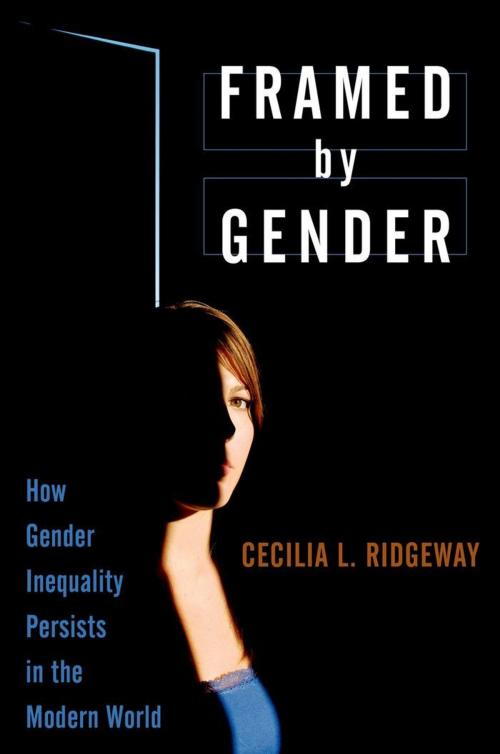Framed by Gender
How Gender Inequality Persists in the Modern World
Nonfiction, Health & Well Being, Psychology, Social Psychology, Social & Cultural Studies, Social Science, Gender Studies| Author: | Cecilia L. Ridgeway | ISBN: | 9780199792986 |
| Publisher: | Oxford University Press | Publication: | February 9, 2011 |
| Imprint: | Oxford University Press | Language: | English |
| Author: | Cecilia L. Ridgeway |
| ISBN: | 9780199792986 |
| Publisher: | Oxford University Press |
| Publication: | February 9, 2011 |
| Imprint: | Oxford University Press |
| Language: | English |
In an advanced society like the U.S., where an array of processes work against gender inequality, how does this inequality persist? Integrating research from sociology, social cognition and psychology, and organizational behavior, Framed by Gender identifies the general processes through which gender as a principle of inequality rewrites itself into new forms of social and economic organization. Cecilia Ridgeway argues that people confront uncertain circumstances with gender beliefs that are more traditional than those circumstances. They implicitly draw on the too-convenient cultural frame of gender to help organize new ways of doing things, thereby re-inscribing trailing gender stereotypes into the new activities, procedures, and forms of organization. This dynamic does not make equality unattainable, but suggests a constant struggle with uneven results. Demonstrating how personal interactions translate into larger structures of inequality, Framed by Gender is a powerful and original take on the troubling endurance of gender inequality.
In an advanced society like the U.S., where an array of processes work against gender inequality, how does this inequality persist? Integrating research from sociology, social cognition and psychology, and organizational behavior, Framed by Gender identifies the general processes through which gender as a principle of inequality rewrites itself into new forms of social and economic organization. Cecilia Ridgeway argues that people confront uncertain circumstances with gender beliefs that are more traditional than those circumstances. They implicitly draw on the too-convenient cultural frame of gender to help organize new ways of doing things, thereby re-inscribing trailing gender stereotypes into the new activities, procedures, and forms of organization. This dynamic does not make equality unattainable, but suggests a constant struggle with uneven results. Demonstrating how personal interactions translate into larger structures of inequality, Framed by Gender is a powerful and original take on the troubling endurance of gender inequality.















